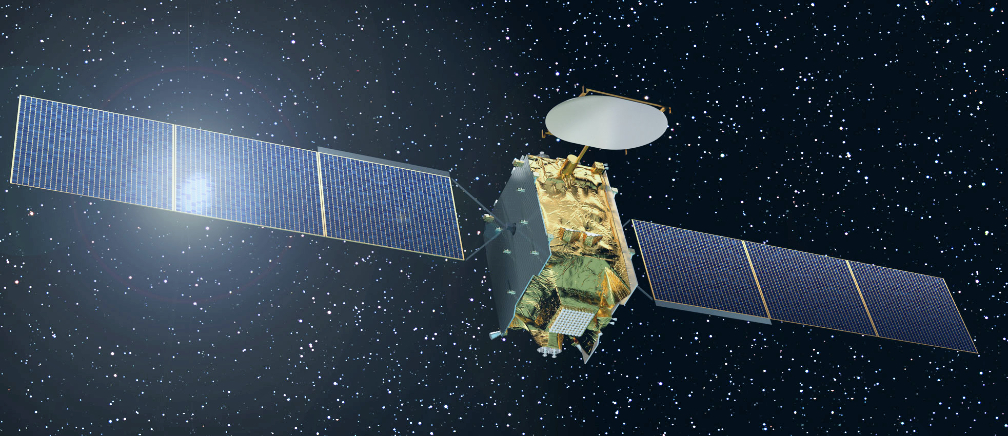
Nilesat and Eutelsat effectively share the 7/8 degrees West orbital positions and have a considerable amount of inter-trading over the MENA market.

Eutelsat CEO Rodolphe Belmer told analysts on Eutelsat’s post-results conference call that it intends to “take back” some of Nilesat’s capacity serving the Arabic-speaking market “to distribute it ourselves.” He explained that the contract with Nilesat comes up for renewal at the beginning of Eutelsat’s next financial year (which starts on July 1st 2021).
“As you know, we decided to acquire back a few years ago our main distributor in the MENA region called Noorsat. And we think it was really for the good of the company [and] integrating the distribution of the broadcast capacity in MENA has enabled us to truly leverage our very strong position in the region with our 7 and 8 West orbital positions. This position is very strong, since we estimate that 90 percent of the Arabic-speaking population in the world watch free-to-air television on this orbital slot, which gives us a very unique situation to deploy interesting or favorable marketing strategies in the region, notably to exercise a relatively good pricing power. And that’s what we are doing well and that’s the reason why our revenues in the regions are growing so fast,” Belmer added.
Belmer expanded, saying, “Of course, we do compare two options, renew with Nilesat in conditions that would be good enough to convince us not to take back and distribute by ourselves and by our very competent sales force the capacity they have in the hands in the region. And that’s where we are at the moment. Situation undecided yet, but what I can tell you is that anyway we think that the out turn will be relatively good for our company.”
Also, Eutelsat enjoyed a near-spectacular market trading day on February 12th when its share price rocketed more than 6 percent to end the day at 10.31 euros. The rise reflected a sense of buoyancy from CE Rodolphe Belmer despite his alerting the market that its much-needed super-satellite Konnect Very High Throughput Satellite (VHTS) would be around one year late coming into use.

The Konnect VHTS is being built now, but COVID has slowed down production. The broadband-focused craft will have 230 Ka-band spot beams and had been expected to launch this year. Its launch has been delayed until 2022 and will enter service in “early 2023.”
Konnect VHTS is not the only craft to be delayed by COVID production challenges. Eutelsat’s Quantum craft is now expected to launch in Q2/2021, pushed back from this current quarter. Eutelsat’s Hotbird 13G is now expected to launch in H1/2022, pushed back from H2/2021.

However, the market did not seem too alarmed by the bad news and instead listened to a presentation that more or less said that the period of austerity was over, that Eutelsat was “resilient” to COVID and that Eutelsat could look forward to more reliable revenues with effect from July 1st this year with the start of its new financial year. Belmer also told analysts that its Occasional Use market had largely recovered.
“In Broadcast, activity remained dynamic in Sub-Saharan Africa, with the expansion of our contract with MultiChoice, one of our on-core African customers, which committed to additional capacity on a multi-year basis. And with the extension of our multi-transponder contract with ZAP TV another on-core customer at 36° East and the leading pay-TV provider in Portuguese-speaking countries,” Belmer said.
Meanwhile, Eutelsat still has its ‘basic’ Konnect Bigblu broadband service up and running and doing business. While the satellite carries only 65 spot beams, it is earning its keep from the likes of Orange of France and TIM of Italy, which have contracted for a combined 350 million euros-worth of capacity over the next 12 years. Add in a contract from Thales Alenia for its government mobility business, and that revenue commitment grows to around 450 million euros over the next 12 years, and discussions with other “major European” distribution players are ongoing
Belmer said that even by 203,0 there will still be some 4 million homes in Europe and 5 million in Africa that will still be beyond terrestrial connectivity.
Michel Azibert, Deputy CEO, told analysts that Broadcast, at 62 percent of group total ,recorded revenues of 379 million euros, down 1.8 percent versus last year. Data and Professional Video 13 percent of group total saw revenues of 81 million euros, down 4.5 percent. Government Services 13 percent of group total saw revenues of 77 million euros, up 2.5 percent. Fixed Broadband 7 percent of revenues stood at 42 million euros, a progression of 2.3 percent. And Mobility 5 percent of revenues saw revenues of 34 euros million, down by 13.9 percent.

